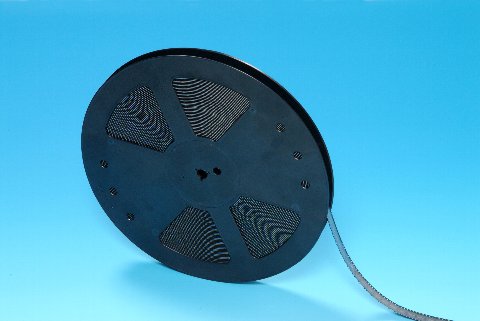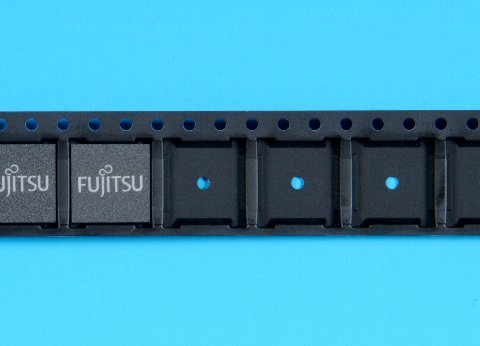Archived content
NOTE: this is an archived page and the content is likely to be out of date.
Fujitsu to Use Biodegradable Plant-based Materials for All of Its Embossed Carrier Tape Used in Packing for Reel-based Shipment of LSIs
Aims to reduce carbon dioxide emissions and limit fossil fuel energy consumption in accordance with the Kyoto Protocol
Fujitsu Limited
-
[1] embossed carrier tape
A packing material that protects semiconductors from shock and static electricity when they are transported on reels from semiconductor factories to printed-circuit-board factories. In addition, on packaging lines of printed-circuit-board factories in which LSIs are embedded into customer's products (circuit boards), LSI products which are packed with embossed carrier tape and wound on reels are attached to packaging equipment.
-
[2] Kyoto Protocol
A protocol adopted in December 1997, which sets forth objectives for the reduction of greenhouse gas emissions, which have a significant impact on global warming. The Kyoto Protocol will become legally binding to its 128 parties on February 16, 2005. The Protocol sets forth Japan's target to reduce its greenhouse gas emission volumes between 2008 and 2012 by 6% in comparison to emission volumes of 1990.
-
[3] lifecycle assessment (LCA)
A method that quantitatively evaluates the environmental burden of a product across the product's entire lifecycle, from mining of resources, to manufacturing and through until disposal.
About Fujitsu
Fujitsu is a leading provider of customer-focused IT and communications solutions for the global marketplace. Pace-setting technologies, highly reliable computing and communications platforms, and a worldwide corps of systems and services experts uniquely position Fujitsu to deliver comprehensive solutions that open up infinite possibilities for its customers' success. Headquartered in Tokyo, Fujitsu Limited (TSE: 6702) reported consolidated revenues of 4.7 trillion yen (US$45 billion) for the fiscal year ended March 31, 2004.
For more information, please see: http://www.fujitsu.com/
Customer Contacts
Advanced Packaging Technology R&D Dept.LSI Packaging Division
LSI Group
Electronic Devices Business Group
![]() E-mail: edevice@fujitsu.com
E-mail: edevice@fujitsu.com
Company:Fujitsu Limited
All company and product names mentioned herein are trademarks or registered trademarks of their respective companies.
Date: 01 February, 2005
City: Tokyo
Company:
Fujitsu Limited,
,
,
,
,

